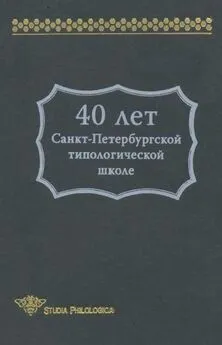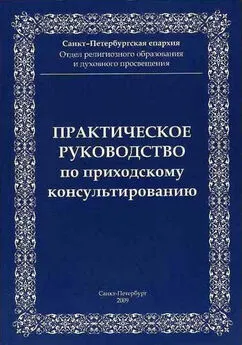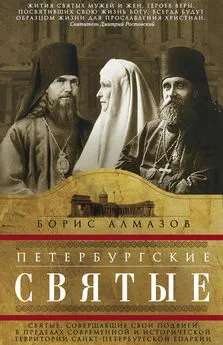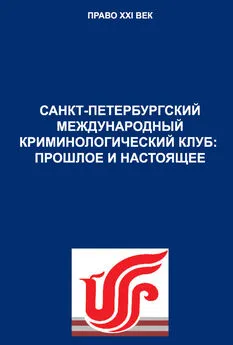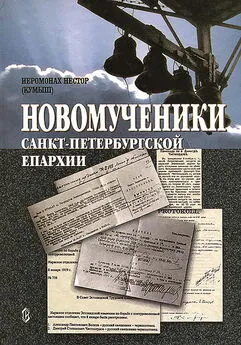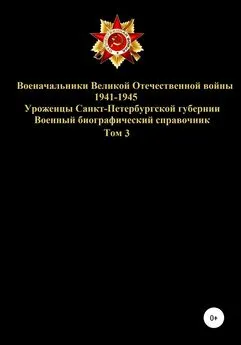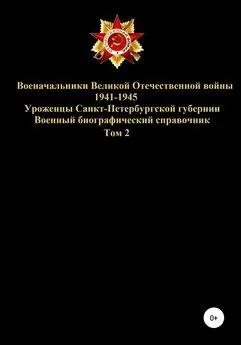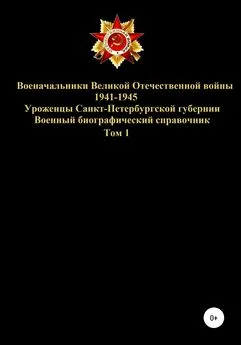В. Храковский - 40 лет Санкт-Петербургской типологической школе
- Название:40 лет Санкт-Петербургской типологической школе
- Автор:
- Жанр:
- Издательство:Знак
- Год:2004
- Город:Москва
- ISBN:5-9551-0003-2
- Рейтинг:
- Избранное:Добавить в избранное
-
Отзывы:
-
Ваша оценка:
В. Храковский - 40 лет Санкт-Петербургской типологической школе краткое содержание
Сборник подготовлен в связи с 40-летием группы структурно-типологического изучения языков Института лингвистических исследований РАН и 95-летием со дня рождения основателя группы — проф. А. А. Холодовича. Статьи, включенные в сборник, посвящены следующим вопросам: теория диатез и залогов, проблемы синтаксиса разноструктурных языков, проблемы грамматической теории. Тематика статей отражает круг научных проблем, находившихся в центре внимания А. А. Холодовича, его учеников, последователей и всех российских и зарубежных лингвистов, связывающих себя с традицией Санкт-Петербургской типологической школы. Статьи подготовлены авторами на основе докладов, прочитанных на международной юбилейной конференции «Категории глагола и структура предложения», которая проходила в Институте лингвистических исследований РАН в мае 2001 г.
40 лет Санкт-Петербургской типологической школе - читать онлайн бесплатно полную версию (весь текст целиком)
Интервал:
Закладка:
The classic Russian example dom postroen , which can be transposed into other Slavic languages (Bulgarian, Polish, Czech or Serbo-Croatian), will allow us to show how the distribution of the participial form is partly governed by the opposition between a stative situation and a dynamic situation and partly by the notion of completion, which is conveyed exclusively by the perfective form:
(16a) Dom postroen iz kirpiča
house.NOM built.PF.PPP.SG.M of brick.GEN
«The house is made of brick».
(16b) Dom *(do six por) postroen iz kirpiča
house.NOM (until now) built.PF.PPP.SG.M of brick.GEN
Lit. «The house is still built of brick».
(16c) Bol'šinstvo domov do six por postroe-n-o
most house.GEN.PL until.now built.PF-PPP-SG.NEUTER
iz kirpiča
of brick.GEN
«Most houses are still made of bricks».
(16d) Dom postroen v prošlom godu
house built.PF.PPP.SG.M in past year
«The house was built last year».
In spite of the form postroen «built», which one can consider resultative because of its derivational history, (16a) denotes a permanent state through the specification of a property attributed to the entity (iz kirpiča «of brick»). The construction therefore enters into the adjectival paradigm as confirmed by the adverbials of duration test in (16b). To explain the grammaticality of (16b), following Knjazev [1988: 351] advances the argument that adverbials of duration are incompatible with resultatives denoting irreversible states, but that these adverbials may appear with resultatives «under special conditions» as for example in (16c) where the subject would be plural. Let us note however that the grammaticality of (16c) evidences the interesting problem of the interaction between quantification and aspect which deserves more study. The comparison between (16a) and (16d) shows that the occurrence of the temporal expression allows one to retrieve the event which is at the origin of the resultative state: (16b) is the expression of an actional perfect passive [Maslov 1988: 66].
As mentioned earlier on the subject of Polish, the «be» — passive may be constructed with an imperfective participle; if the verb has an imperfective derivative, two constructions are possible:
(17a) Trevata e / beše okosena *(mnogo păti)
grass.the is/was mow.PF.PPP.SG.F (many times)
(ot studentite)
(by students.the)
«The grass was mowed» (by the students).
(17b) Trevata e / beše kosena ( mnogo păti )
grass.the is/was mow.IMPF.PPP.SG.F (many times)
(ot studentite)
(by students.the)
«The grass has been mowed» (many times) (by the students).
(17c) Trevata e/beše okosjavana mnogo
grass.the is/was mow.IMPF.PPP.DERIVATE.SG.F many
păti/vsjaka godina (ot studentite)
times/every year (by students.the)
«The grass is/was mowed many times/every year (by the students)».
In (17a) the meaning is clealy that of a resultative state having its origin in a completed event. As opposed to (17a), in (17b) the resultative state has its origins in an interrupted event; the process is thereby highlighted and means «has been mowed (by someone)» or «has been mowed (by someone)»; Maslov terms this «actional passive present» and «actional passive perfect» respectively. However, according to the tense of the auxiliary and the discourse context, the resultative state may be related to past or future situations.
(18) Ništo za otbeljazvane, osven ednapodrobnost, kojato săšto ne e osobeno ljubopitna: sleden săm. Ne tvărde
follow.IMPF.PPP.SG.M am
nastojčivo i ne osobeno grubo, no săm sleden (B. Rajnov).
am follow.IMPF.PPP.SG.M
«Nothing to report except one detail which is not particularly strange: I'm being followed. Not really regularly, nor brutally, but I'm being followed».
(19) A xlabăt beše pečen <���…> po star whereas bread.the was cook.IMPF.PPP.SG.M according old bălgarski običaj
Bulgarian tradition
«Whereas the bread was baked <���…> following some old Bulgarian tradition».
(20) Toj znaeše, če osemdeset dekaraniv <���…> bjaxa
he knew that eighty acres fields were
kupuvaniobsto, no slučajno v prodavatelnija
buy.IMPF.PPP.PL in.common but by.chance in of.sale
akt bjaxa pisanisamo na imeto na Valčana.
act were write.IMPF.PPP.PL only at name.the of Valchana
«He knew that eighty acres of field <���…> had been bought in common, but that, by pure chance, in the sale document, they had been registered under the sole name of Valchan».
With some merely interrupted processes, the construction becomes compatible with adverbs such as mnogo păti «many times» or često «often». The adverbial form is thus incidental to the event and leads to an iterative interpretation. In other words, in the iterative sense, the event is presented as an open class of events in which neither a first nor a last occurrence may be isolated and the resultative state refers to the general result of all these occurrences.
Going back to example (17c), the participle is derived from a secondary imperfective verbal base, and such forms demand an iterative context; the construction thereby denotes a resultative state which originates from an event presented as a closed class of events which has a first and a last occurrence, even though their number is not always specified.
Due to the verb prefix, each event included in the series is analysed as a completed process. The following two examples make apparent the opposition between this meaning (17a) and that of a resultative state (17b):
(21a) <���…>ot dva i polovina veka knjažeskijat dom be
of two and half century of.prince.the house was
opožarjavanmnogo păăti
burn.IMPF.PPP.SG.M several times
«<���…> over two and a half centuries the princely residence has been set on fire several times».
(21b) <���…> knjažeskijat dom be opožaren predi dva i
of.prince.the house was bum.PF.PPP.PL before two and
polovina veka *mnogo păti
half century several times
«<���…> two and a half centuries ago the princely residence was set on fire».
The other Slavic languages have apparently not developped such a mechanism. Yu. Maslov [1988: 79] points out a few scarce examples such as the following in Polish which does not seem to belong to a paradigm as do those in Bulgarian:
(22) Wqgiel jest wydobywa-n-y
coal is mine.IMPF-PPP-SG.M
«Coal is (being) mined»
Descriptions of Serbo-Croatian show the first two variations pointed out for Bulgarian: (23a) and (24a) refer to the resultative state of an accomplished and completed process; (23b) and (24b) refer to the resultative state of processes which is a simply accomplished, apparently barring iteration:
(23a) Travaje/bila pokošena ( *seljakom )
grass is/was cut.PF.PPP.SG.F (peasant.INSTR)
«The grass has been cut».
(23b) Trava je košena jutros (*seljakom)
grass is cutlMPF.PPP.SG.F morning (peasant.INSTR)
«The grass is cut in the morning (by the peasants)».
(24a) Kuća je gradena dva mjeseca (*ljudimi)
house is build.IMPF.PPP.SG.F two months
«The building of the house lasted two months».
(24b) Kuća je/bila sagradena za dva mjeseca ( *ljudimi )
house is/was build.PF.PPP.SG.F for two months
«The house was built in two months».
In Russian, the constructions with — n / -t are strongly related to aspect. As rightly stated by Poupynin [1990: 11], the periphrastic passive with an imperfective participle bears very specific aspectual meanings («aspectual particular meaning», [ibid: 131]), due to very specific conditions of syntactic order, lexicon and context. Being unable to convey the notion of process, which is specific to the passive reflexive, an utterance such as (25a) combines two semantic values according to the author [ibid.: 11—2]: that of experience («experiential action») and that of resultant state («resultant state»).
But the use of the reflexive perfective passive such as (25b), which is infrequent and often deemed familiar, is due to «its ability to express the so-called potential contextual meaning» of the perfective which is interpreted as a quality of the subject [Poupynin 1990: 11–12' 1996: 131]:
(25a )Koni byli kovarty tol'ko na perednie nogi
horses were shoe.IMPF.PPP.PL only on of.front legs'
The horses had shoes only on their front legs', (lit. the horses were only shod on their front legs) (A. N. Tolstoj).
(25b) Vaša kniga pročitaet-sja s
your.NOM book.NOM read.IMPF.PRES-REFL with
udovol'sviem
pleasure-INSTR
«Your book can be read with pleasure».
The meaning of passive process, i. e. one which occurs simultaneously with the speech act, may be conveyed by the reflexive passive. However, this meaning always appears in a marked context and usually has a generic interpretation:
(26) Mašinite se remontirat v momenta
machines.the REFL repair.IMPF.PRES.3PL in momentthe
«The machines are being repaired right now».
While both passive constructions may be used with the same verb root, their aspectual meaning is different. Thus, in Bulgarian, for example, the construction with the perfective participle expresses a resultative state ((27a), (28a)) and stands in sharp contrast with the notion of event conveyed by the reflexive aorist passive ((27b), (28b)); whatever the lexical meaning of the verb, the aorist does not imply a resultative state.
(27a) Vinoto beše izpito (ot tvoite prijateli)
wine.the was drink.PF.PPP.SG.NEUTER (by your.the friends)
«The wine was drunk by your friends».
(27b) Vinoto se izpi (ot tvoite prijateli)
wine.the REFL drmk.PF.AOR.3SG (byyour.the fnends)
«The wine was drunk by your friends».
(28a) Xljabăt beše izjaden s udovolsvie
bread.the was eat.PF.PPP.SG.M with pleasure
«The bread got eaten up with pleasure».
(28b) Xljabăt se izjade s udovolsvie
bread.the REFL eat.PF.A0R.3SG with pleasure
«The bread got eaten up with pleasure».
Those oppositions must be kept, as illustrated by such verbs as svarja «cook, boil». (29a) is more appropriately analysed as a construction in which the resultative participle functions as a predicate; (29b) in turn shows that the reflexive aorist denotes a completed process, i. e. an event:
(29a) Supata bešesvarena na fix ogăn
soup.theWas boil.PF.PPP on low fire
«The soup is being cooked over slow heat».
(29b) Supata se svari *(ot decata)
soup.the REFL boil.PF.AOR.3SG (by children)
Читать дальшеИнтервал:
Закладка:
